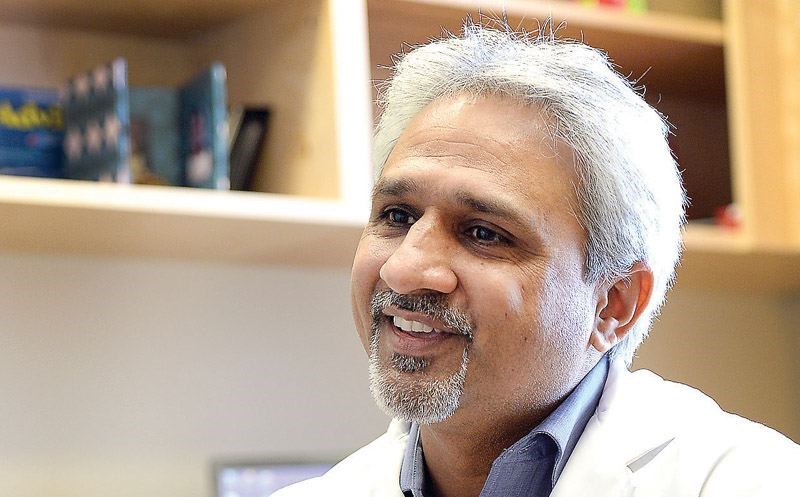When it comes to men's health, it's often just a challenge to get them to the doctor.
But a men's clinic, on Saturday April 18, aims to make it a quick and easy option for the reluctant gender. It's a day-long one-stop shop where doctors assess general health with an eye for cardiovascular health, prostate cancer, and diabetes.
It'll be the third clinic Dr. Satish Mann attends.
"I feel the biggest impact we can make is by preventing stuff or screening and catching it early," Mann said. "A lot of men are scared to come to a doctor because they feel we'll find things. If we catch something early, especially cancer, it does improve their chances."
A 2005 study by the B.C. Centre for Health Services and Policy Research found twice as many men compared to women avoided health services.
Mann has lost a few patients to prostate cancer, something he said could have been caught earlier.
At 40 years, men should be tested for cardiovascular health and at 50, colon and prostate cancer screenings come into the picture (unless they have a family history of the disease).
Mann said the group medical visit can make it a more impactful experience.
"In any group setting I think the patients learn more information because a lot of time they will share among themselves and their hesitation goes away."
The Rotary Club of Prince George organizes the quarterly clinics, paid for by its annual Big Blue Ball fundraiser in November.
It creates a venue for men to go to discuss the overarching health issues that affect them, said Ross Birchall, a director with the club.
"We wanted to make this as easy as possible," he said, especially when many of the men have haven't visited a physician in years.
"We're hoping this is the kick start to get the conversation going and that this will be the start of a routine," said Birchall, adding if they don't have a family doctor, the clinic has a full list of available doctors.
"Even if that routine is coming to our clinic quarterly, that's better than nothing."
Men in general have consistently higher death rates in all areas, with the exception of lung cancer and men are twice as likely as women to die from diabetes.
The project also focuses on health realities for men in the north.
A 2010 Northern Health report on the subject said northern men smoke and drink more and are more likely to have road traffic injuries and occupational deaths.
"The why is the big question, but regionally we're an industry centre so a lot of men are employed in trucking, and forestry, mining, that kind of stuff," Birchall said. "While individual companies have been making a lot of effort to design in-house health programs, I think just the lifestyle we lead does not accommodate going to the doctor as often as we should."
After launching in January 2012, the Saturday exams have become popular. The January clinic was "full to bursting," with a wait list and more signing up for the April clinic.
"We really feel there's fuel in the fire now."
So, they've changed the format to allow for more than 70 patients, with the usual information session talking men's health now communicated on screen.
In January, about eight per cent of the men left needing further attention.
"That's huge, I mean that's the impact that we're having," Birchall said. "They walk out of there and yes, that sucks because they got bad news, but better to know now than later down the road when it's more serious.
Patients are scheduled between 9 a.m. to 5:30 p.m for exams that should take about 10 to 15 minutes. Unlike a doctor's office or walk-in clinic which can mean wait times, the clinic keeps to its schedule, Birchall says, adding patients should come in about 10 minutes early.
To register for the Saturday, April 18 session at the University Hospital of Northern B.C., call 250-617-2711. That same number can be used for the prostate cancer support group, which meets the last Wednesday of every month.



